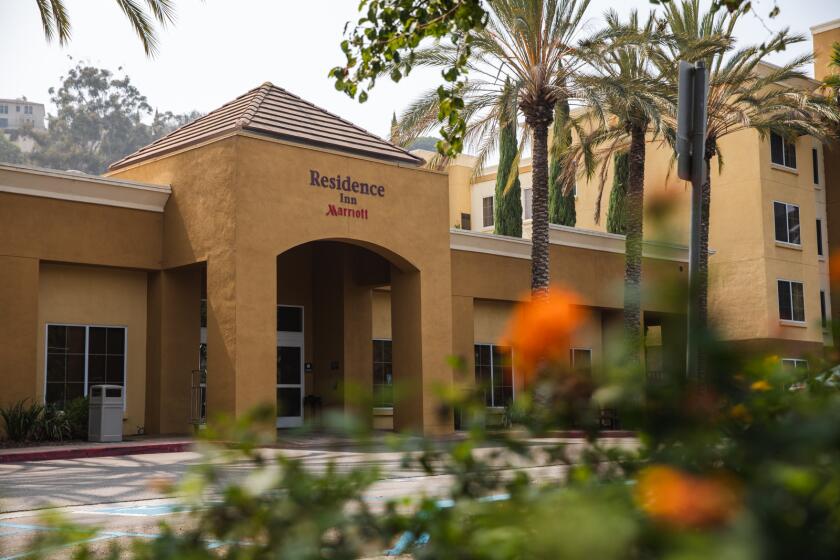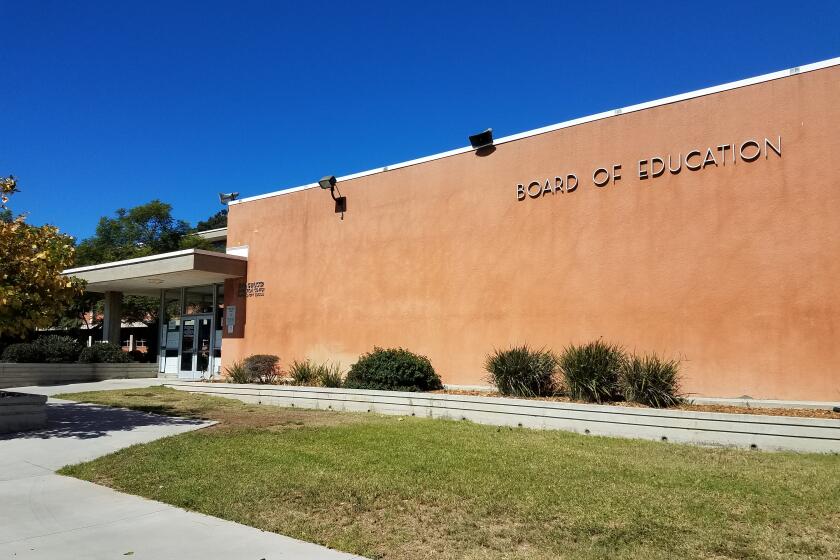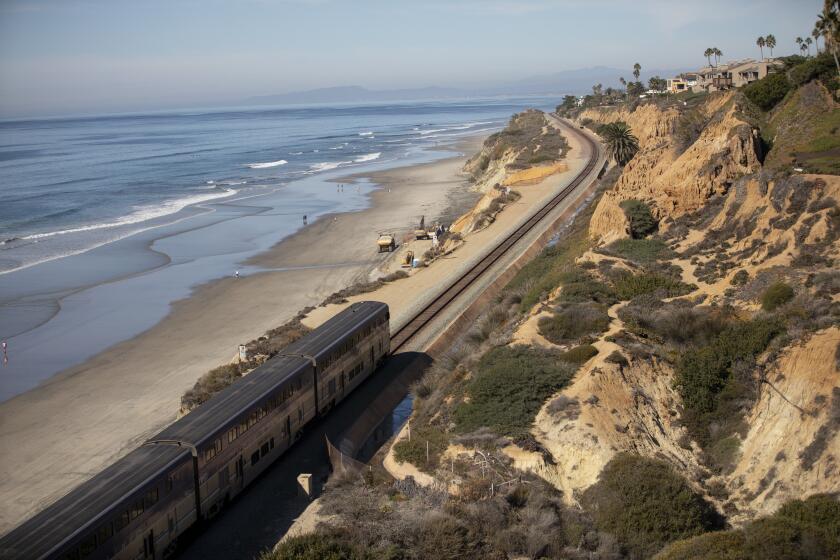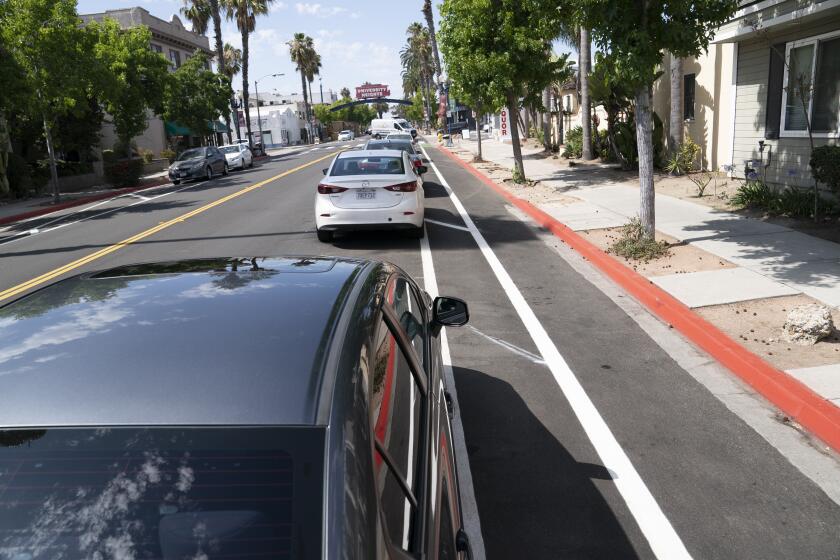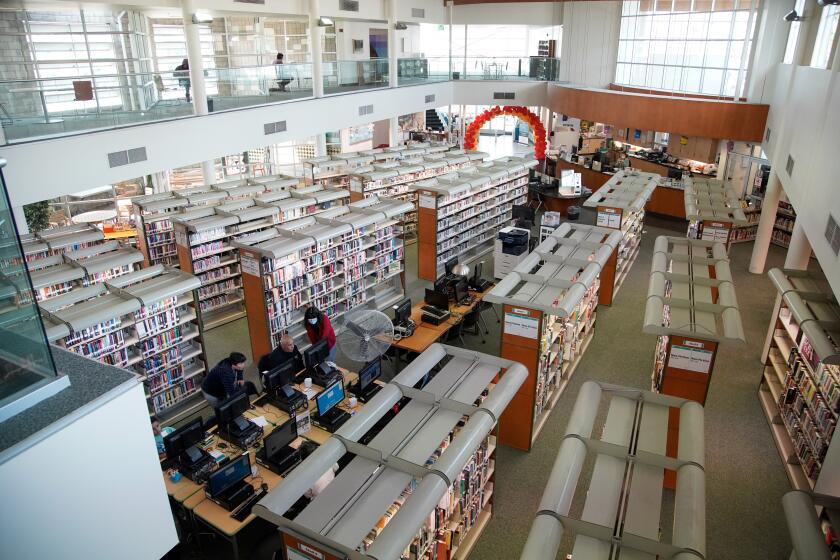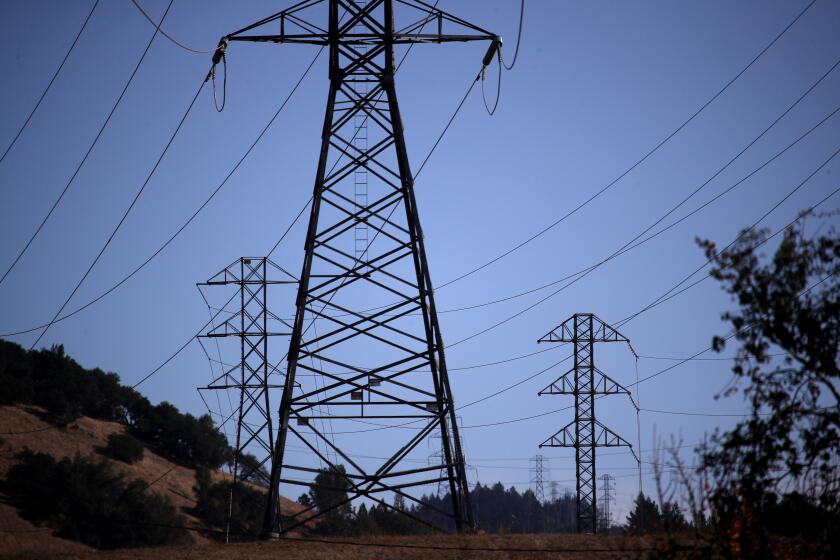Opinion: What are people doing to cope with record-high inflation?
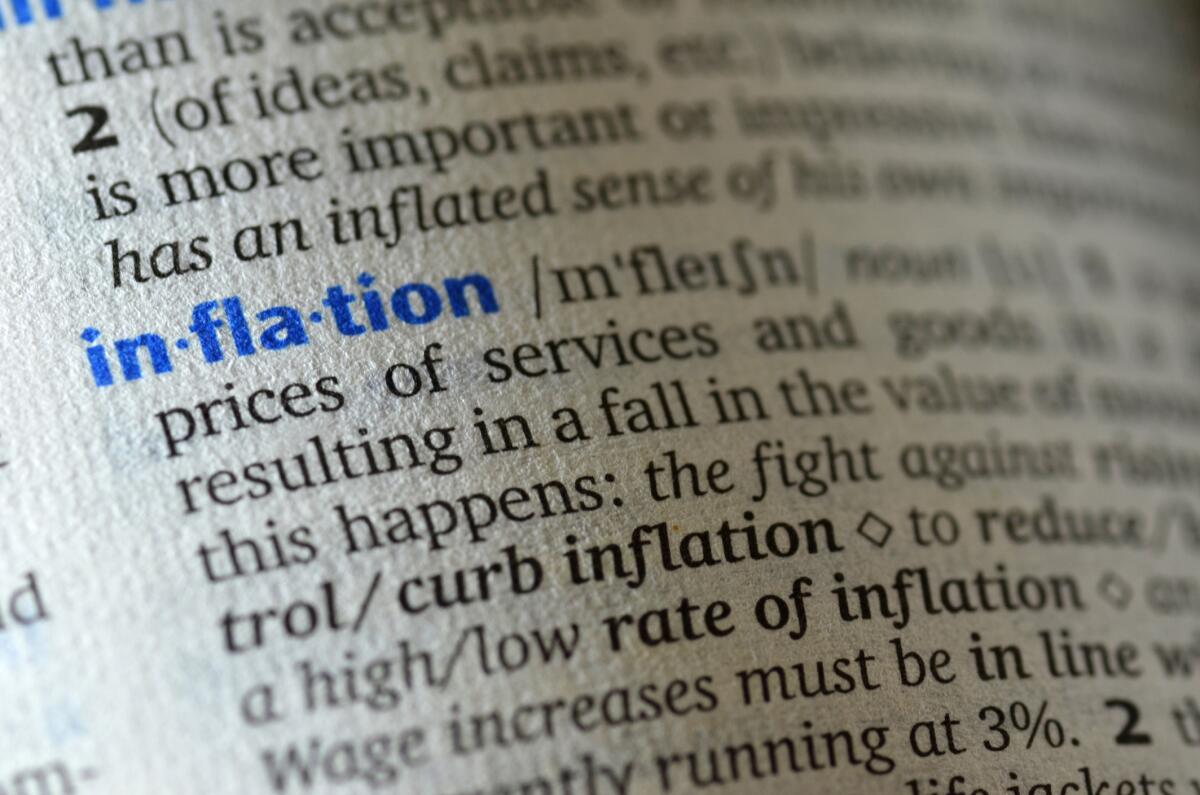
We wondered: Inflation is at a 40-year high. How have you been affected and what are you doing in response?
Soaring costs will hurt us seniors most
Inflation is an enemy for those of us who are retired and living on monthly pensions, as well as anyone planning to do so in the future. People used to refer to it as “living on a fixed income,” and those who were trying to do that were often pitied in the 1960s, 1970s and 1980s. In those decades, there was often inflation of 5 to 8 percent (and more) per year, which meant substantially reduced purchasing power every year for many retired citizens.
For retired San Diego city employees like me, the built in not-to-exceed annual 2 percent cost-of-living adjustment has been adequate for the past 20 years to mostly maintain the pension’s purchasing power. However, if we will now be experiencing annual inflation significantly above 2 percent, many of us will be required to modify our spending and lifestyle.
The death of “Be My Baby” singer Ronnie Spector had many of us thinking about the playlists of our lives.
In fact, those city employees who fought so hard to return to a fixed retirement income instead of a 401(k) account will realize they made a serious mistake. The reason, of course, is the 401(k) account, being tied substantially to the stock market, will obviously keep up with high inflation far better than the fixed pension amount.
As for what to do in response, it is probably wise for people living on fixed incomes to begin to plan to tighten their financial belts, and to put whatever extra money they may have into investments that keep their value in times of high inflation, like certain real estate or the appropriate part of the stock market.
Hal Valderhaug, La Mesa
Inflation is not new but should be slow
In the 1960s, my dad took me to school in our family’s Ford Fairlane, and I remember seeing gas at 28 cents a gallon. My parents bought their first home in San Diego, after leaving Phoenix, for $19,000 in 1957. They also sent all my siblings to Catholic schools for $600 a year. The only good thing about inflation is that it happens so slowly we hardly notice or make a big deal about it.
Now I see homes around my neighborhood going for $1 million-plus, and gas stations charging nearly — and sometimes beyond — $5 a gallon. Prices for luxury items and necessities have risen slowly but surely since way back when, with some small fluctuations back and forth.
Inflation is something that we must deal with or suffer the consequences of being without what we deserve. I feel very fortunate to be blessed with a job, that for the most part, allows me to stay up with the rate of inflation. I feel sad for those who are not so blessed. Hopefully, the economics of our capitalistic system keep the rate at a very slow pace so that everyone can enjoy life.
Jim Valenzuela, Poway
Not addressing costs hurting some families
My family’s personal inflation rate has been 26 percent. We are two working professionals with two kids in day care, here in San Diego.
In our early 30s, we thought we were finally going to be able to afford a 1,200-square-foot starter home in need of minor upgrades. During 2021, the value of such homes increased from approximately $740,000 to $930,000, up $190,000 on the year. The increase exceeds the entire value of the down payment fund we’d painstakingly accumulated over the last 10 years.
The policies of the federal government, including the Federal Reserve, may have mitigated certain people from experiencing economic pain during the pandemic, but at the expense of greatly diminishing the standard of living for all future home buyers. The decrease in our standard of living is equivalent to a 26 percent pay cut.
We’re estimating that we’ll need to push out our eventual (if even ever-attainable) retirement date by 5 to 10 years just to offset the higher costs we will incur for the rest of our lives due to just one year of inflation.
I don’t understand why so-called “progressive” administrations, which claim to champion the middle class, are so fond of inflationary policies that increase the wealth of the affluent who own real estate and other assets buoyed by inflation, by stealing from the current and future standard of living for the middle class.
Daniel Sage, Mira Mesa
That all prices rise is just a fact of life
How am I dealing with rising prices?
I started driving “legally” at age 16, and had to put gas into my mother’s 1949 Oldsmobile if I wanted to drive it. One day a week, I drove her car to school and took two of my friends with me. They each paid me a dime. I pulled into the gas station and the cheerful attendant would run over to my car, greet us and ask “The usual?” then put one gallon of gas into the car. He proceeded to check the air in the tires and wash the windshield. I’d hand him a quarter and he’d give me back six cents in change.
Yes, back in the mid-1950s I paid 19 cents for a gallon of gas. Over the years, I’ve watched the price of gas rise — from that 19 cents to the current price of upwards of $5 a gallon in some places. Has this caused me to stop driving? No. I’ve accepted the price of gas because I want to drive.
Also back in the late 1950s, I remember my mother sending me to the store to buy a loaf of bread, which at that time cost 23 cents. Milk was delivered to the house and left on the doorstep. Cost? 64 cents a gallon. Today a gallon of whole milk costs about $3.75. Did the increase in prices stop me from drinking milk or eating bread? No. I want the bread and milk, so I pay the price and accept it.
In 1961, I bought my first house in Florida, one that had just been built. It cost $6,800. In 1967, I moved from Florida to San Diego and bought a house, this time an older house, for $13,500 — almost twice the amount that I had paid for that new house in Florida just six years earlier.
Rising prices were a fact of life, so I accepted it. Imagine my shock when in 2005 I sold that house for $335,000. I definitely accepted that.
And so it goes year after year. Prices go up, always have, and always will no matter how much we complain. Nothing has changed. Inflation will always be with us. So what can I do about it? Nothing, so I accept it.
Note of interest: The one type of monetary increase I have never had trouble accepting was an increase in salary!
Iris Price, Ramona
Living within one’s means is not so bad
Two economic classes are represented worldwide, one at the extreme of wealth and the other of abject poverty. Globally, I would guess the numbers of people who live at the lowest margins vastly exceed those of what we consider rich. Here in the United States, we have a society composed of “middle class” citizens functioning between the extremes. With a lifetime behind me, and economic ups and downs aplenty, I think I am safe classifying my family as a middle-class one, managing to live within our means.
Folks holding riches can pretty much ignore the vagaries in the economy, and have anything money can buy. Unfortunate others among us occupying the fringes may not know where their next meal is coming from, or when. Many of those folks are condemned to suffer daily hunger and deprivation, or perhaps even die penniless, lonely and homeless on a street in San Diego. Rising prices are of little consequence to either the ultra-rich or the dirt poor. We are in the broad economic middle, having adequate resources to muddle through. We face choices in adjusting our lifestyle to accommodate rising prices with minimal discomfort. Holding the reins on how we spend our Social Security check is key to keep living in expensive San Diego. It calls for thoughtfully chipping away at what we buy.
It is axiomatic that needing and wanting is not the same thing. We now come to our spending decisions based on that reality. Anything that flunks the need-versus-want muster gets rejected straight away. There are, or course, quality-of-life issues that get a sensible OK, the higher price accepted, with small sacrifices elsewhere. Nuts and bolts necessities are given high priorities, subject to management decisions. We need, and can’t compromise painlessly: the roof over our heads, sufficient food on our table, basic utilities, fuel and other expenses for one car, and medical care. Each of these presents challenges, but we have learned that we don’t have to win them all to get by.
Gas prices are the killer of the day. We compress driving chores by using routes combining trips we need to make. I learned that for some trips the trolley is not so bad. You can probably cook as well as is done in many restaurants. And fast takeout leaves much to be desired. Alcohol and nicotine cause problems and cost a lot of money — do the math and stop if this is you. Don’t shy away from any help you need. There are sources to check for assistance in housing, nourishment, counseling and medicine.
Go for it. Pride is not worth dying for.
Stan Levin, Kearny Mesa
U.S. deficit spending can’t be sustained
I have been drastically affected by the high inflation. I am spending double on almost everything., I cringe when I hear inflation went up by almost 7 percent. What planet are they living on? I know we use the Consumer Price Index to track inflation, but the CPI is clearly flawed.
Everything has gone up for my family. Groceries are 25 percent to 30 percent higher, gasoline is almost double from a year ago, and the other day in Home Depot, a five-gallon bucket of chlorine tabs was more than $200; they were just $93 in Spring 2021.
The worst part is that many are saying its because of the pandemic, supply-chain issues etc, but aren’t politicians also to blame? And how come it’s so high? According to the Pew Research Center, inflation is the third highest in the world for the last year? So what else is causing it? The answer is money printing.
The United States has printed trillions of dollars in just less than two years, it doesn’t take an economist to tell you that’s inflationary.
Until we curb our spending and stop these stimulus and government-sponsered cash giveaways, the inflation will continue, even if the Federal Reserve raises interest rates, which they are expected to do very soon, and that has its own negative economic impacts as well.
Gregg Parker, Santee
For some the answer is to get out of town
To put it simply, I moved. I found that my money goes further here. Gas hovers between $2.98 and $3.08 @ Gallon. Food is cheaper, as is housing. Cashing out of my SoCal property has allowed me to find something with a little more space, and retire early. Lot of history, nature, parks, and places to see. If I need a big city, DC is a 3 hour drive away....the weather can be an issue, but the four seasons, especially fall are gorgeous. My niece saw where we lived, and she and her husband just relocated too and are a mile away.
Do I miss America’s Finest City? You bet, but I visited recently and it just wasn’t the same.
John Hopkins, Chesapeake, Virginia
Get Essential San Diego, weekday mornings
Get top headlines from the Union-Tribune in your inbox weekday mornings, including top news, local, sports, business, entertainment and opinion.
You may occasionally receive promotional content from the San Diego Union-Tribune.




